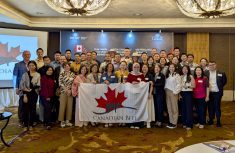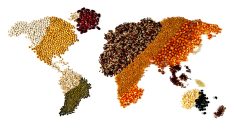The problems for Canada over Huawei’s Meng situation have grown more complex. The preliminary hearing, which was already scheduled for eight days, has morphed into a multi-week, perhaps multi-month, legal extravaganza. Arguments about possible co-ordination between the U.S. and Canada, possible violation of her legal rights and the possibility of her extradition even being dropped are being argued in Vancouver.
There was no help from the U.S. in what is being referred to as the Stage One trade agreement between the U.S. and China outlined in October. No official mention was made of the Huawei situation, except that the U.S. was poised to issue licenses for some American firms to do business with Huawei again.
Read Also

Picking the most efficient cows to rebuild your cow herd
A new cow ranking system to help beef farmers and ranchers pick the most efficient cows as they rebuild their herds.
Which means any chance for Canadians to sell beef to China in the short term will have to be negotiated without a resolution of the Meng situation. That is beside the serious plight of the Canadian citizens detained by China.
Dealing with China is no picnic. As you know, the Trump administration struggled to a Stage One trade deal that dealt with just one of the key issues President Trump has had with China. They made some progress on protecting intellectual property. Forced technology transfer and an economy heavily influenced by state-owned and state-run companies were not mentioned. China is in no hurry, if indeed it intends to even deal with the state-run economy. President Xi has been leading the country in exactly the opposite direction, fostering more state-run companies and industries.
It is hard to say if Xi thinks running a delaying action will give him time to engineer a gradual transition or if he is making a bet Trump will not get re-elected. Most of the West has not exactly leaped to publicly back Trump’s attempts to hold China accountable to fair trading rules but privately they agree with him. Xi has to know that. The question is whether or not he thinks the world will eventually force China to adapt to global fair trade standards or whether he thinks he can keep China doing whatever it wants. Europe has not shown itself a tough, fighting adversary.
The beef situation was apparently not addressed in the Stage One agreement with China, so for now, America is shut out, although Vietnam and Hong Kong still like American beef.
It will be interesting to see just how much grainfed beef the Japanese people will buy, given a better price for both Canadian and U.S. beef under the CPTPP for you all and the new trade agreement with Japan for us. Japan’s economy has been doing better but Prime Minister Abe’s government has recently allowed its national sales tax to increase from eight to 10 per cent, cutting purchasing power. It would be just our luck that we finally get some tariff relief just as the Japanese consumer loses purchasing power. On the other hand, a drop in prices just when the Japanese consumer needs it could be a good match.
The hold on the Chinese market will put more incentive on Canadian exporters to develop the Pacific Rim markets now available to them through the CPTPP. Don Close of Rabobank gave an interesting presentation at NCBA’s mid-year meeting that indicated some global markets that haven’t been exposed much to grainfed beef and variety meats can add up more than one might think over time. The U.S. Meat Export Federation also gave some impressive presentations at the same meeting. They have used the strategy of employing knowledgeable professionals from within the regions being targeted to develop markets, demonstrating the product and showing chefs and importers how to use it in their cultural setting. Evidently, when folks in different cultures get some income, they can learn to like grainfed product.
Speaking of relatively intransigent Chinese negotiators, it sounds like you all have had as much fun with the EU as we have. Under the CETA, one would have thought Canada had a great “in.” Instead, Europe’s fears of technology have kept your exports far below what was expected, only two or three per cent of what was authorized.
Of course, we have fought to get in with regular grainfed beef since the mid-’80s. Both the EU’s scientists and our scientists have agreed, for example, that beef raised with growth promotants is safe for human consumption. But that hasn’t fazed the EU’s politicians. They kowtow to the sensitive nature of Europe’s most terrified activists, who fear anything prepared with technology beyond Chaucer’s time.
So Brexit might hold some potential for Canadian cattle producers. The United Kingdom may not choose to be as ridiculous on regulations as the EU. A Brexit might have happened by the time this column goes to print, but the odds are better that it has been put off for another three months while someone with the wisdom of Solomon figures out how to split the Emerald Isle without damaging it.
















